Airlines, Airports and Airliners News 06 to 12 June 2022
Compiled by Willie Bodenstein
Google Banner Ad
THIS WEEK IN AIRLINES, AIRPORTS AND AIRLINERS
Comair to be liquidated.
SAA increases capacity to meet demand.
IATA Launches MBA in Aviation Degree with Embry Riddle Aeronautical University.
Washington Dulles International Airport celebrates inaugural Ethiopian flight to Lomé.
Launch of ICAO assistance, capacity-building and training for sustainable aviation fuels.
Rolls-Royce Pearl 10X engine performs flawlessly.
IATA, ground handling makes progress towards standardization, boosting safety and efficiency.
Schiphol terminal only accessible to passengers scheduled to depart within four hours.
Brussels Airport invests 70 million euros to further modernise its cargo zone.
Google Banner Ad
COMAIR TO BE LIQUIDATED

Comair's business rescue practitioners on 9 June 2022 lodged a court application to convert the business rescue proceedings into liquidation proceedings.
One of the BRPs, Richard Ferguson, says with its two airline brands - British Airways (operated by Comair and kulula.com), market share, modern aircraft fleet, experienced employees, sales and distributions channels Comair was an inherently viable business. Unfortunately, though, despite their best efforts the BRPs had been unable to secure the capital required for the airline to recommence operations.
"We did our utmost to secure the funding, but when we were unable to do so had no option to lodge the application. It is an extremely sad day for the company, its employees, its customers and South African aviation." After entering business rescue, Comair was able to start flying again when the Comair Rescue Consortium (CRC) invested R500m for a 99% share of the equity in the company at the time.
Although the amounts indicated by the business rescue plan were invested, the Company unfortunately faced unforeseen headwinds including three further COVID-related air travel lockdowns inter alia the "Red Listing" of South Africa by certain European countries, notably the United Kingdom, the suspension of the Company's AOC in March 2022 by the regulator as well as significantly high fuel prices experienced in the past five months. Each of these events had a material negative impact on the business. The CRC were only able to finance the impact of these events up to a certain point.
The BRPs ongoing requests to the CRC to provide a plan to raise the further funding necessary to absorb the balance of these and other future potential economic shocks were not successful. In the circumstances, the BRPs approached other lenders to raise the funding required. Regrettably when this funding could not be secured before the existing funding was exhausted, scheduled flight operations were suspended on 31 May 2022.
Comair's BRPs continued the process to secure additional funding from other sources but despite several parties expressing interest, they were unable to secure sufficient substantive commitment.
Ferguson said that the company's employees and customers who held bookings or were owed refunds will now become creditors of the Company.
SAA INCREASES CAPACITY TO MEET DEMAND
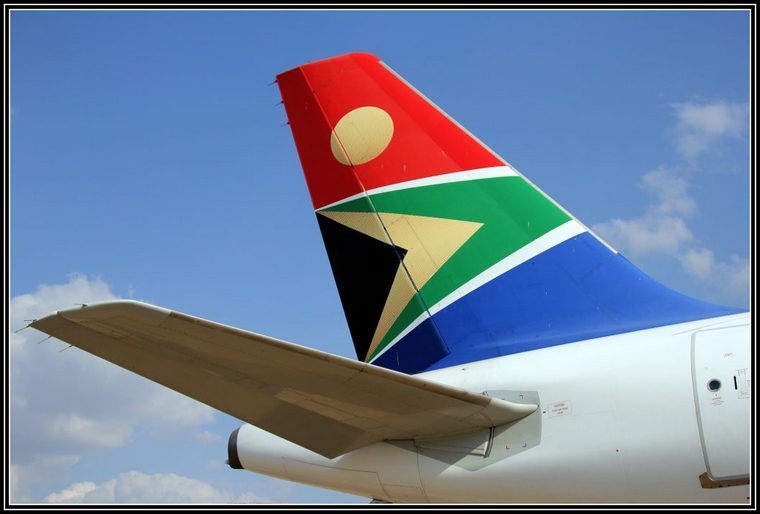
South African Airways (SAA) notes the unfortunate decision by Comair to voluntarily suspend all flights, effective 1 June 2022. SAA's Interim Chairperson and Chief Executive, Prof John Lamola says, "Having emerged from business rescue ourselves, we empathize with Comair and understand the difficulties caused by COVID and high fuel prices.
"The team at SAA has been working hard to find solutions to help affected customers, and is in the process of adjusting our flying programme to adding more seats between Johannesburg, Cape Town and Durban. We are also looking at options to help customers on other routes serviced by SAA, adds Lamola.
SAA will increase frequencies where possible and use existing capacity to meet customer demand. Kindly check our social media platforms and website for the latest information.
SAA advises all customers that the airline's normal pricing structure remains in place, and during demand periods lower fares are naturally taken up first.
Google Block Ad
IATA LAUNCHES MBA IN AVIATION DEGREE WITH EMBRY RIDDLE AERONAUTICAL UNIVERSITY
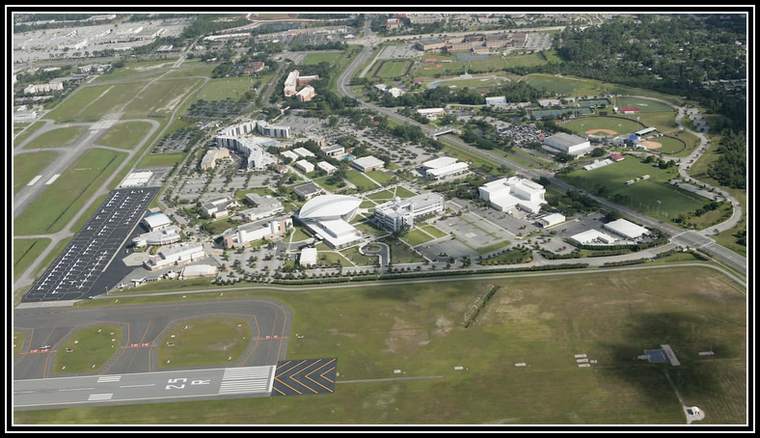
The International Air Transport Association (IATA) is teaming up with Embry-Riddle Aeronautical University-Worldwide (ERAU) to launch a Master of Business Administration in Aviation (MBAA) as well as a stand-alone certificate in Airline Management.
The jointly developed program aligns with ERAU's modular degree program and IATA's aviation management expertise. Through three blocks consisting of 36 credit hours, the program applies modern business concepts, methods, and tools to the challenges and specifics of the aviation business, creating an academic degree which combines core business competencies with a strong aviation foundation.
The first block of this virtual program will focus on the importance of creating high-reliability organizations by teaching the fundamentals of risk, managing risk and creating resiliency. The second block will concentrate on core business activities and its structure is based on input from the aviation industry on how to provide students with the necessary skills to advance their career into managing functional departments. The third block consists of an aviation specialisation in commercial management, focusing on the various airline business models and revenue management strategies.
"As aviation rebuilds from the COVID-19 crisis, laying the foundation for the workforce of the future is essential. Companies across the aviation value chain are recruiting once again and hence the importance of having programs in place which will provide the right skillset for the talent of the future. By partnering with one of the most renowned academic institutions in aviation - Embry-Riddle - we are pleased to offer a course tailored to those seeking a career in airline management," said Frederic Leger, IATA's Senior Vice President for Commercial Products & Services.
"ERAU has developed a ground breaking MBA program in Airline Management with a highly-reliable-organisation theme. Partnering with IATA to create the airline management certificate will empower students to advance their leadership career in this industry and beyond. The fact that this degree is the result of collaboration between two of the leading organisations in the aviation space- ERAU, one of the top aviation universities in the world and IATA, the trade association representing the global air transport sector," said Dr. Maneesh Sharma dean of ERAU's College of Business on the worldwide campus.
In addition to its wide-ranging training portfolio, IATA has numerous Academic Partners, all offering specialised aviation-related training programs.
WASHINGTON DULLES INTERNATIONAL AIRPORT CELEBRATES INAUGURAL ETHIOPIAN FLIGHT TO LOMÉ

The Metropolitan Washington Airports Authority celebrated the launch of Ethiopian Airlines' new nonstop flights from Dulles International Airport (IAD) to Lomé, Togo (LFW), on Wednesday. The new service, operating three times per week on a Boeing 787-9 Dreamliner aircraft, offers an unmatched opportunity to travel nonstop from North America to Lomé.
"Today commemorates an important milestone in the 17-year history with our partners at Ethiopian Airlines," said Airports Authority President and CEO Jack Potter. "That history includes Ethiopian's selection of Washington Dulles as its first nonstop destination from Addis Ababa to North America in 2005. With the addition of nonstop service to Lomé, Dulles becomes the only North American market with service to Africa 10 times per week on Ethiopian."
The inaugural flight to Lomé, Togo, represents the 40th global capital city served by Washington Dulles International Airport. The new nonstop flight to the Gulf of Guinea and points beyond in continental Africa serves local and transfer passengers from Dulles International. A pre-departure celebration at the gate included music, dancers and a ribbon-cutting ceremony.
A member of Star Alliance, Ethiopian currently operates more than 128 of the youngest and most modern aircraft fleet with service to 62 cities in Africa and more than 127 international passenger and cargo destinations across five continents.
Google Banner Ad
ROLLS-ROYCE PEARL 10X ENGINE PERFORMS FLAWLESSLY
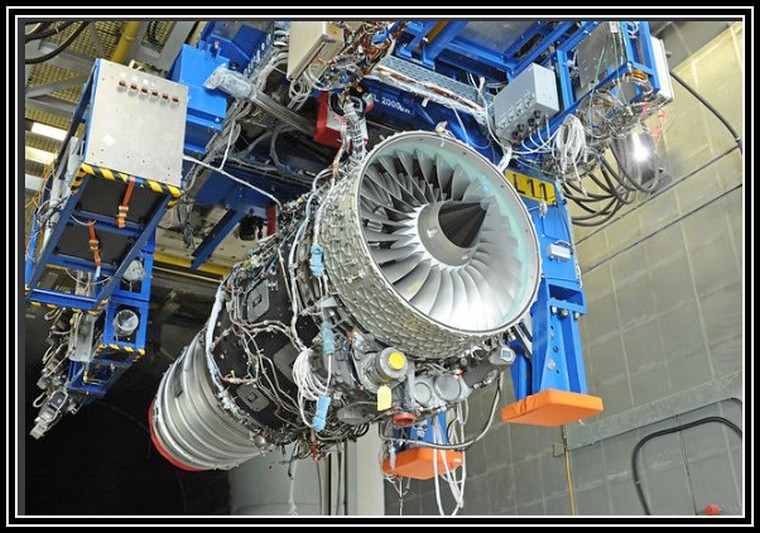
The Rolls-Royce Pearl® 10X engine development programme is making good progress and has successfully cumulated more than 1,000 testing hours, both on the Advance 2 demonstrator and the Pearl 10X engine configuration.
The first dedicated Pearl 10X test engine ran for the first time earlier this year and surpassed its target thrust levels on the first test run, making it the most powerful business aviation engine in the Rolls-Royce portfolio. All testing conducted so far has proved the reliability of the engine and shown it will meet the performance requirements to power Dassault's flagship, the Falcon 10X.
The Pearl 10X is the newest member of the state-of-the-art Pearl engine family and the first Rolls-Royce engine ever to power a business jet of the famous French aircraft manufacturer. Dassault's selection of the Pearl 10X for its new top range product is another testament to Rolls-Royce's position as the engine manufacturer of choice in business aviation.
So far, the development programme has included the rigorous testing of the new ultra-low emissions ALM combustor, which is compatible with 100% Sustainable Aviation Fuel (SAF) and the new accessory gearbox, which allows for higher additional power extraction. One of the next milestones will be the first full powerplant, including its bespoke Spirit nacelle, EBU and mount system, entering the test programme later this year.
Dr. Dirk Geisinger, Director Business Aviation, Rolls-Royce, said: "Our Pearl 10X team is extremely focussed on the development of the engine and it makes me proud to see the continuous progress of the programme. The combination of highly-efficient power and outstanding environmental performance of the Pearl 10X is in a class of its own and will support Dassault's Falcon 10X in setting new standards in the ultra-long-range corporate jet market."
The Pearl 10X features the Advance2 engine core, the most efficient core available across the business aviation sector, and combines it with a high-performance low-pressure system, resulting in a superior thrust of more than 18,000lb. Compared to the last generation of Rolls-Royce business aviation engines, the Pearl 10X offers a 5% higher efficiency, while delivering outstanding low noise and emissions performance. The result is an engine that offers a market-leading combination of power and efficiency. This combination will enable customers and operators to have premium airport accessibility and fly ultra-long-range connections whilst also being able to travel nearly as fast as the speed of sound.
It brings together innovative technologies derived from the Rolls-Royce Advance2 demonstrator programme and proven Pearl family features to deliver world-class environmental performance. This includes a highly-efficient blisked fan; a high pressure compressor with a market-leading pressure ratio and six blisked stages; an ultra-low emissions combustor; a two-stage shroud less high pressure turbine as well as an enhanced four-stage low pressure turbine that is one of the most efficient and compact in the industry. This suite of technologies is all housed together within a brand new, ultra-slimline nacelle from Spirit AeroSystems.
LAUNCH OF ICAO ASSISTANCE, CAPACITY-BUILDING AND TRAINING FOR SUSTAINABLE AVIATION FUELS
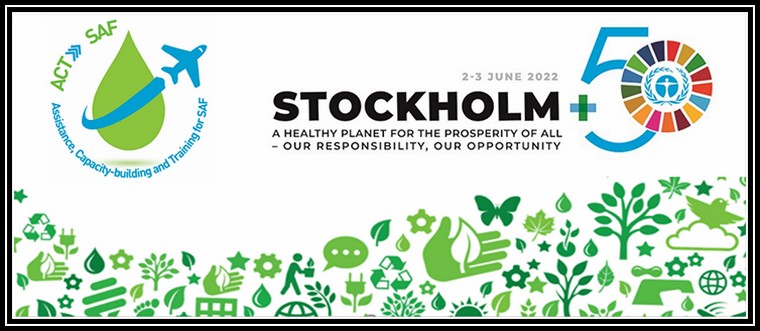
The ICAO Assistance, Capacity-building and Training for Sustainable Aviation Fuels (ACT-SAF) programme was officially launched at a Stockholm+50 associated side event held at ICAO Headquarters in Montréal yesterday.
ICAO ACT-SAF will provide opportunities for states to develop their full potential in sustainable aviation fuels (SAF) development and deployment, in line with ICAO's No Country Left Behind initiative, the 2050 ICAO Vision for SAF, and the three main pillars of sustainable development recognised by the United Nations: economic, social and environmental.
"While no one solution will fit all States and stakeholders, the importance of ICAO's role in bringing partners together, and supporting capacity building and implementation, is very clear," remarked ICAO Secretary General Juan Carlos Salazar. "Many States and stakeholders have recognised the need for aviation to act now, and the contributions of ACT-SAF to the objectives of Stockholm+50 will encourage important near-term synergies for global action on sustainable fuels."
The importance of SAF to the decarbonization of the aviation sector has recently been shown in the ICAO Committee on Aviation Environmental Protection (CAEP) report on the feasibility of a long-term global aspirational goal (LTAG) for international civil aviation CO2 emission reductions, which will inform discussions on LTAG in the lead up to the 41st Session of the ICAO Assembly.
The LTAG report shows the largest potential CO2 reductions by 2050 (up to 55%) deriving from cleaner fuels and energy sources. New aircraft technologies are projected to contribute to a further 21% CO2 reduction, while operational improvements will lead to another 11% reduction.
"Increased international ambition on sustainable aviation at our assembly this September will allow ICAO to explore extending the ACT SAF approach, driving wider support for aviation CO2 reductions in areas such as new technologies and more efficient operations," emphasised ICAO Council President Salvatore Sciacchitano.
The ACT-SAF launch event was organised at ICAO's Headquarters during a side event officially associated to Stockholm+50 to showcase ICAO, member states and other stakeholder's achievements and further efforts for decarbonising aviation.
Stockholm+50 commemorates the fiftieth anniversary of the 1972 United Nations Conference on the Human Environment, which was the first global meeting to make the environment a pressing global issue. The Stockholm Declaration that resulted from this event raised the issue of climate change for the first time.
ICAO will facilitate the ACT-SAF effort together with its regional offices and Technical Cooperation Bureau to provide ICAO implementation support in SAF to States, and will also need concerted support from States and industry in the coming months to roll-out and build-up this new initiative. ICAO is actively encouraging more States and partners to become involved in the ACT-SAF programme, as this will create positive ripple effects globally, and help unlock feedstock potentials for SAF markets over the coming decades. It will also build upon the action already taken by ICAO on SAF, leveraging for example the successes of the Organisation in setting global standards for the sustainability of aviation fuels.
Google Block Ad
IATA, GROUND HANDLING MAKES PROGRESS TOWARDS STANDARDIZATION, BOOSTING SAFETY AND EFFICIENCY

The International Air Transport Association (IATA) reported that the IATA Ground Operations Manual (IGOM) Portal and IATA's Safety Audit for Ground Operations (ISAGO) are successfully driving greater standardisation of ground handling processes around the world. This is particularly important for the rapid build-up of operations as COVID-19 restrictions are lifted.
"IGOM and ISAGO complement each other in driving much-needed harmonisation across the ground handling sector. And the boost in participation in both programs as the industry ramps up its operations is good news for both safety and efficiency. The aim of both is to reduce risk, avoid ground damage and enable standardised, sustainable operations," said Monika Mejstrikova, IATA's Director of Ground Operations.
IGOM Portal
Since the IGOM Portal's launch in January, 58 airlines and 11 ground service providers (GSPs) have subscribed to its services.
The portal enables airlines and ground handlers to interface with the IATA Ground Operations Manual. IGOM is the global industry standard for ground handling worldwide. The portal is an online platform where, with IGOM as the primary reference, airlines and GSPs can exchange information, including any variations, on their ground handling requirements.
"The goal is global adoption of ground handling standards. The efficiency and safety gains from global standardisation have been proven throughout aviation's development. The IGOM portal is helping achieve this by making it easier for airlines and GSPs to manage and monitor the implementation of standards and to understand variances. With 69 organisations already using the portal the drive for greater standardisation is getting a boost," said Mejstrikova.
The IGOM Portal is available free of charge to all airlines and GSPs. To subscribe, access the IGOM Portal.
ISAGO
Since 28 March 2022 airlines have joined ISAGO, thereby benefiting from 500 audit reports available to complement their oversight activities.
ISAGO provides an independent assessment of all aspects of managing and providing safe ground handling services, based on the IGOM standards.
"The increase in ISAGO participation reflects the benefits of verified compliance with global standards. With more governments now including ISAGO in their safety oversight programs, we can expect even more airlines and GSPs to join. In addition to safety improvements, ISAGO participation helps airlines to allocate resources efficiently," says Mejstrikova.
Given the benefits of standardisation to safety performance, IATA urges governments to recognise ISAGO in their regulatory frameworks for safety oversight. Key among the many positive outcomes is the assurance that Safety Management Systems (SMS) are being implemented by GSPs.
SCHIPHOL TERMINAL ONLY ACCESSIBLE TO PASSENGERS SCHEDULED TO DEPART WITHIN FOUR HOURS
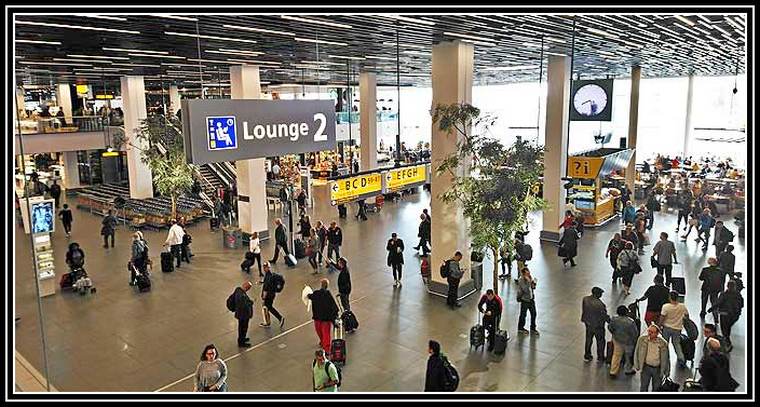
From this Friday, Schiphol will launch a pilot project whereby only passengers scheduled to depart within four hours will be admitted to the departure hall. In addition, Schiphol requests passengers to bring as little baggage as possible. Schiphol is taking these measures to reduce crowding at the check-in desks and security control and to speed up passenger flow.
During the May holidays, we immediately started with the development and implementation of measures to tackle the long queues at the airport. These measures are part of the previously presented action plan for the summer, and aim to ensure a pleasant experience at Schiphol. Simulations have shown that this is the most efficient way to speed up passenger flow through security control. We will of course keep a close eye on the situation.
Patricia Vitalis, Director of Airport Operations at Royal Schiphol Group; "By only admitting passengers scheduled to depart within four hours to the departure hall, the airport wants to prevent that passenger's queue up too early for the check-in desks and security control. The experience in recent weeks has shown that some passengers arrive more than four hours before their scheduled departure time. This leads to longer queues, while their check-in desk has not even opened yet."
In consultation with the airlines, Schiphol requests passengers to bring as little baggage as possible. We ask passengers to place their hand baggage into their hold baggage, or to bring only one piece of hand baggage. Passengers with hand baggage only who have checked in online may pass straight on to security control.
Schiphol expects that passenger numbers in the lead-up to the summer holidays will be similar to those in the May holidays, including in the weekends. Schiphol will make every effort to keep waiting times as short as possible. Therefore, the current measures, such as deploying extra personnel, including members of our office staff, will remain in place.
Google Banner Ad
BRUSSELS AIRPORT INVESTS 70 MILLION EUROS TO FURTHER MODERNISE ITS CARGO ZONE

Brussels Airport's cargo zone has been developing steadily in recent years. To meet the growing demand for storage and handling space, and given the need to modernize several buildings, Brussels Airport will invest 70 million euros over the next three years to redevelop a large area located in the heart of the cargo activities. The works in this zone will start later this week.
The cargo area at Brussels Airport has been seeing new developments in recent years and in the coming months and years the next step will be taken. The redevelopment of the central area of the cargo zone and the development of new cargo buildings and offices on the airport site will allow the airport to welcome new partners and offer the new and current partners warehouses and offices that are larger, more efficient, more modern and more sustainable. "Accelerating the development of the cargo zone is one of the priorities within the new strategy of Brussels Airport.," points out Arnaud Feist, CEO of Brussels Airport Company. "We want to further strengthen our position as a global cargo hub and develop the cargo area in a sustainable way in order to offer our logistics partners the most efficient infrastructure and operational processes."
By the beginning of 2025, three new modern and sustainable buildings, including parking areas, will be opened in the heart of the Brussels Airport cargo zone, called Brucargo Central. After the development of Brucargo West, the new Animal Care and Inspection Centre two years ago, and the new Swissport Cargo building, the development of the cargo area is thus continued in order to meet the growing demand for capacity. No less than 70 million euros will be invested in the redevelopment of this 83,500 m² central area, located in the second line of access to the tarmac. The demolition of the eight obsolete buildings in this area will start in the next few days, the construction works are scheduled to start at the end of 2023. Modernisation, innovation and sustainability are the key elements for these new buildings.
"Our cargo activities are growing steadily and our cargo area is constantly developing." continues Arnaud Feist. "The demand from current and future partners for storage and handling capacity is very high. Even if the cargo area of Brussels Airport is already very large, it is important to rethink and reorganise the spaces for more efficiency, but also and especially to modernise them. Sustainability plays a key role in this modernisation. Brussels Airport wants to improve the energy efficiency of its entire infrastructure, a strategy that applies far beyond the cargo area."
The redevelopment of Brucargo Central will also improve and secure traffic streams and mobility to optimise operations. The new mobility scheme will improve safety and mobility for all users, including pedestrians and cyclists.
In 2021, 843,000 tonnes of cargo transited through Brussels Airport. These increasing volumes (+30% compared to 2020) clearly demonstrate the growing interest in air cargo transport, which was strengthened during the Covid crisis in the areas of pharmaceuticals and e-commerce. As an essential platform for the worldwide transport of vaccines, Brussels Airport has played and still plays a crucial role in the fight against Covid. But that's not all. Brussels Airport offers a premium cargo platform, with state-of-the-art infrastructure, an extensive network and customer-focused technology, focusing on four areas of expertise: e-commerce, perishables, live animals and pharmaceuticals. To meet this high demand, Brussels Airport's cargo zone consists of a large surface area of 130 hectares and no less than 380,000 m² of warehouses.
With this major investment in Brucargo Central, Brussels Airport is strengthening its crucial position as the second most important economic hub in Belgium.
Google Banner Ad

|
                    |























